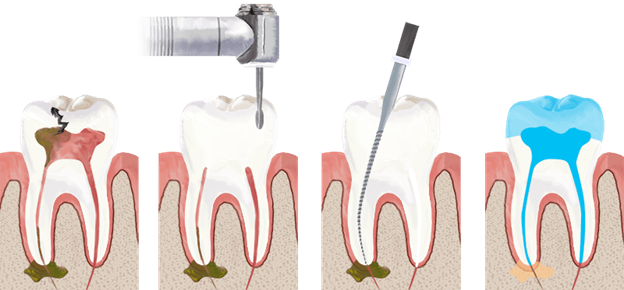Dental implants are a wonderful solution for missing teeth and other severely damaged teeth. They’re also quite expensive, which is why many people shy away from them. However, with the right care and prep work, you can have dental implants in no time. In fact, the entire process will take only a few hours. If you’re wondering how much bone do you have for dental implants? It might seem like an irrelevant question, but it’s actually very important. If you don’t have enough bone in your jaw to support a dental implant, then that means that there’s not enough room for the titanium screw to sit firmly without collapsing or fracturing your jawbone further. This could lead to a very complicated experience and set you up for future complications down the road.
Where is the bone in my mouth?
Before we get into how much bone you have for dental implants, it’s important to first understand where that bone is. There are a few places where you can find a bone in your mouth, but the most important places are your posterior mandible and maxilla. Your mandible is the lower part of your jaw that holds your teeth in place while your maxilla is the upper part of your jaw that holds your upper teeth in place. When it comes to how much bone you have for dental implants, you’ll want to focus on the mandible and maxilla, as these are the areas where the implants will be placed.

Your other jawbones are important, but they’re typically not as critical when it comes to dental implants. The lower jaw (mandible) supports the bottom row of teeth and gives shape to the lower face and chin. This is the bone that moves as the mouth opens and closes. The upper jaw (maxilla) holds the upper teeth, shapes the middle of the face, and supports the nose.
What happens during a bone density test?
A bone density test is essential when it comes to how much bone you have for dental implants. During this test, a technician will use something called a CT scan to examine your jaw. They’ll look at the density of your jawbones, and if you don’t have enough bone for dental implants, then you’ll need to take a few extra steps to prepare for your procedure. A CT scan is an X-ray of your head and jaw.

This scan will show the technician where your jaw is lacking bone, which can vary from person to person based on factors such as age, genetics, and diet. If you don’t have enough bone for dental implants, you’ll want to take some time to change up your diet and lifestyle. This will ensure that you have the right amount of bone in your jaw so you can get dental implants without complications. A bone density test is essential when it comes to how much bone you have for dental implants.
How do I know if I have enough bone for dental implants?
Now that we’ve gone over what happens during a bone density test, we can talk about how you can gauge whether you have enough bone for dental implants. The two easiest ways to do this are to take a look at your gums and talk with your dentist about your options. After your CBCT scan, the technician will give you prints of the images. You can take these prints home with you and show them to your dentist.
They’ll be able to pinpoint exactly where your jaw is lacking bone, which will help inform you about whether or not you have enough bone for dental implants. Your dentist will also be able to examine your gums. If you have inflamed gums, this can be a sign that you don’t have enough bone in your jaw. You’ll also want to keep an eye on your gums as you progress through dental implant treatment. If they become inflamed during the placement of your implants, then that’s a sign that you don’t have enough bone in your jaw.
How is bone evaluated before implant placement?
A clinical examination of your mouth and radiographs will allow your dentist to assess the bone. In some cases, cone beam computed tomography (CBCT) will be prescribed to evaluate and measure the amount of bone in the jaw. A CBCT scan uses advanced X-ray techniques and generates a 3D image of the jawbone. It provides information such as bone height, width, density, and shape. It also reveals the proximity of vital structures like nerves, blood vessels, and the maxillary sinus.

What’s the best way to increase the amount of bone in my mouth?
After you’ve had your bone density test, you’ll want to start working on increasing the amount of bone in your jaw. This will take some time and effort, but you can do it. A few tips to increase the amount of bone in your jaw include eating a balanced diet, exercising, and wearing loose-fitting mouth guards while you sleep. When it comes to your diet, it’s important to eat a wide variety of foods. You’ll want to get plenty of calcium, protein, and vitamin D.
You can also take supplements to make sure you’re getting the recommended amount of each. Exercise can also help you increase the amount of bone in your jaw. You should aim to get 30 minutes of exercise each day. Lastly, you should wear a loose-fitting mouth guard while you sleep. This will help protect your jaw while you sleep, which can be essential when it comes to how much bone you have for dental implants.
Conclusion
Dental implants are a wonderful solution for missing teeth and other severely damaged teeth. They’re also quite expensive, which is why many people shy away from them. However, with the right care and prep work, you can have dental implants in no time. In fact, the entire process will take only a few hours. If you’re wondering how much bone do you have for dental implants? It might seem like an irrelevant question, but it’s actually very important. If you don’t have enough bone in your jaw to support a dental implant, then that means that there’s not enough room for the titanium screw to sit firmly without collapsing or fracturing your jawbone further. This could lead to a very complicated experience and set you up for future complications down the road.
Suggested Article –
Pros and Cons of Full Mouth Dental Implants
Difference between Crowns and Dental Implants?
Follow Us For More Updates





